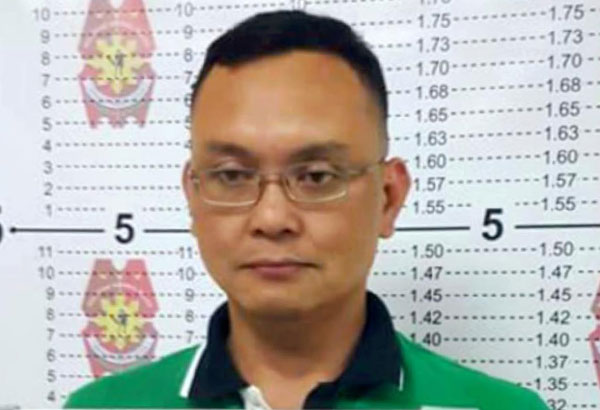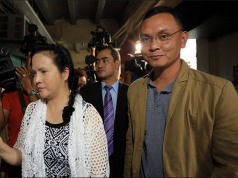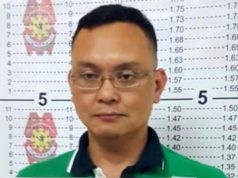MANILA, Philippines – The Philippine National Police’s Drug Enforcement Group (PNP-DEG) has expressed disappointment over the exoneration of former anti-drug agent Marine Lt. Col. Ferdinand Marcelino.
Marcelino, former head of the Special Enforcement Service of the Philippine Drug Enforcement Agency, was released from detention Thursday afternoon after the Department of Justice (DOJ) dropped the P380-million drug charges against him and his Chinese asset Yan Yi Shou alias “Randy,” a former interpreter for PDEA, who was also freed on Friday.
PNP-DEG spokesperson Supt. Enrico Rigor on Friday warned that Marcelino’s case could become a precedent for other arrested alleged drug personalities to also get off the hook by securing certification from the Armed Forces of the Philippines (AFP), the National Bureau Investigation (NBI), and other concerned agencies that they got themselves involved in drug operations for the purpose of sharing intelligence information to authorities.
Earlier, Marcelino was able to secure a certification from the Philippine Army’s Intelligence Security Group that he was working as an intelligence agent for the military.
He was also able to get another certification from the Intelligence Service of the Armed Forces of the Philippines signed by AFP Intelligence Chief Brigadier General Ronald C. Villanueva stating that Marcelino had “laterally coordinated with law enforcement agencies such as NBI in pursuing his intelligence operations against illegal drugs and organized crime groups which, however was cut short by his unfortunate ‘arrest’ incident in an operation in Manila on Jan. 20, 2016.”
These certifications were among the evidence that Marcelino presented before the court to back up his assertion that he was on an AFP-sanctioned secret anti-drug mission when he and Yan were arrested on January 21, 2016 during a raid at a suspected shabu (crsytal meth) laboratory in Sta. Cruz, Manila.
But Rigor said on Friday that until now Marcelino and Yan have not yet shared information on who owned the shabu laboratory – an apartment at Celadon Residences on Felix Huertas and Batangas Streets in Sta. Cruz where they were found by policemen and PDEA agents.
Based on the case filed by the PNP-DEG, Yan was caught by authorities on the second floor of the apartment allegedly packing 77 kilos of shabu while Marcelino was downstairs and allegedly had the key to the unit.
Rigor added that if Marcelino and Yan’s supposed anti-drug operations were indeed legitimate, they should have coordinated their activities with the PDEA, which he said is mandated by law.
He said the certifications that Marcelino had secured from the AFP were not enough basis to conclude that he was in an official undercover drug operation.
“There should be a PDEA representative in all major drug operations,” said Rigor.
He said the PDEA-DEG would do everything to appeal the court’s ruling that favored Marcelino and Yan.
“The PNP-DEG will exert all efforts in seeking a reversal…There are still legal remedies that both the PNP-DEG and PDEA will pursue.”
The DOJ said in a resolution that it had dropped the cases it filed against Marcelino and Yan because the evidence presented by the PNP and the PDEA were insufficient to charge the two in court.
The said resolution reversed the September 2016 DOJ resolution that found evidence for Marcelino and Yan to prosecuted for alleged violation of Section 11 of the Comprehensive Dangerous Drugs Act for possession of illegal drugs.







